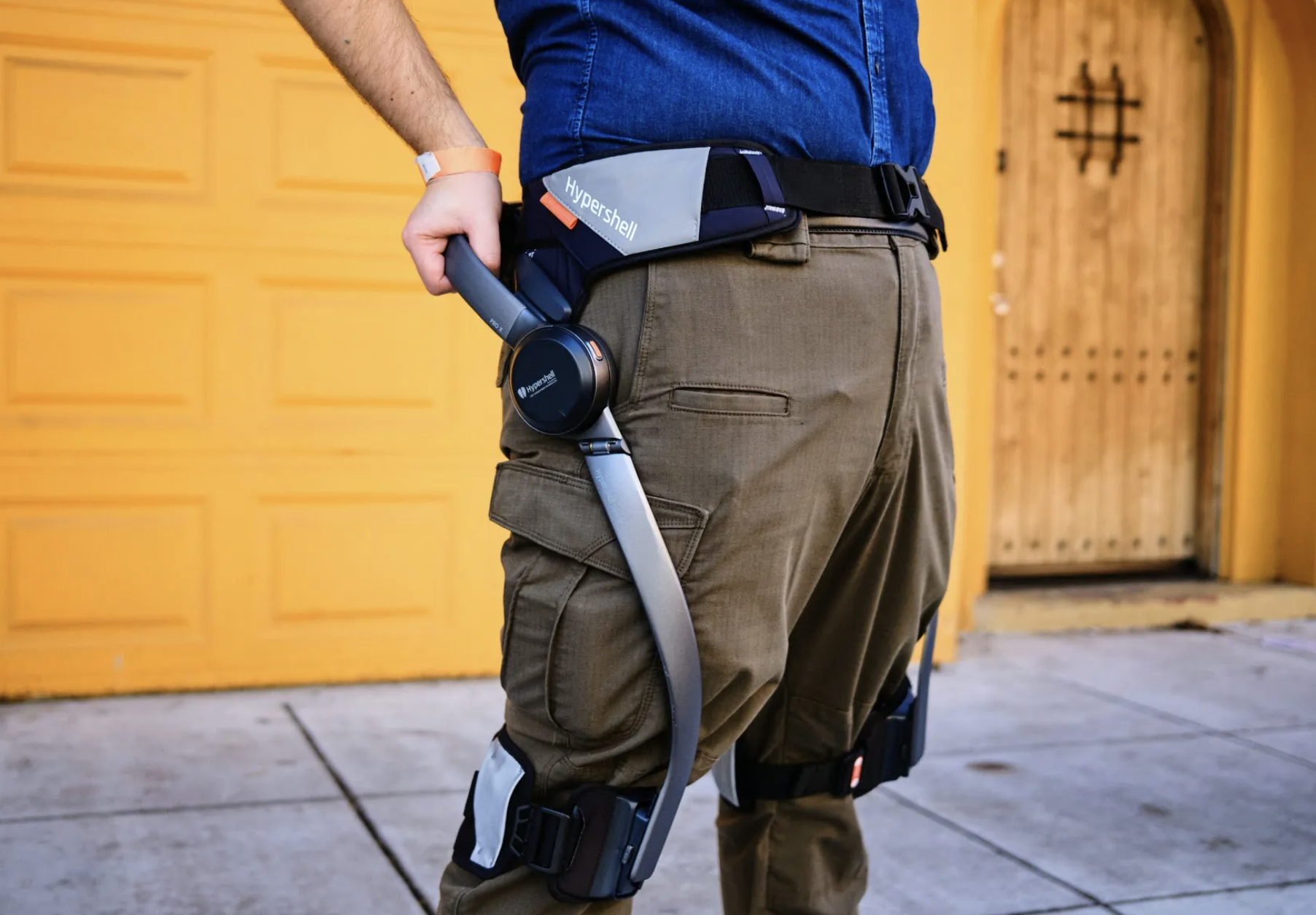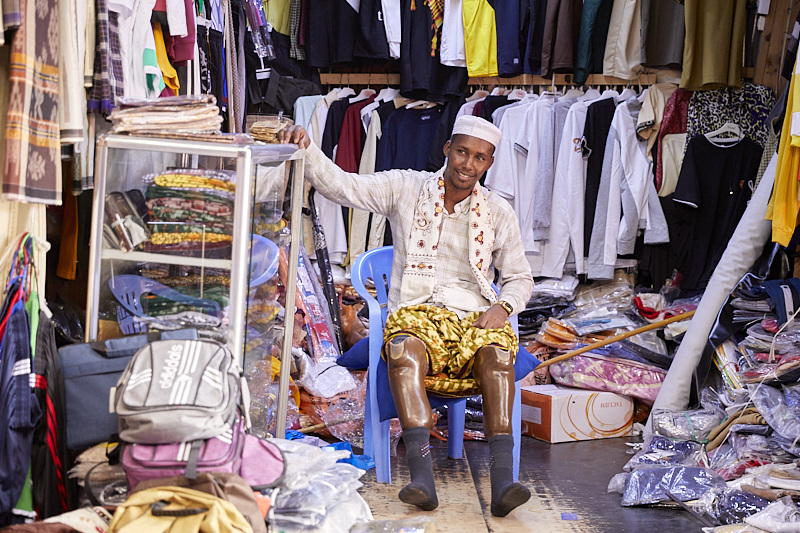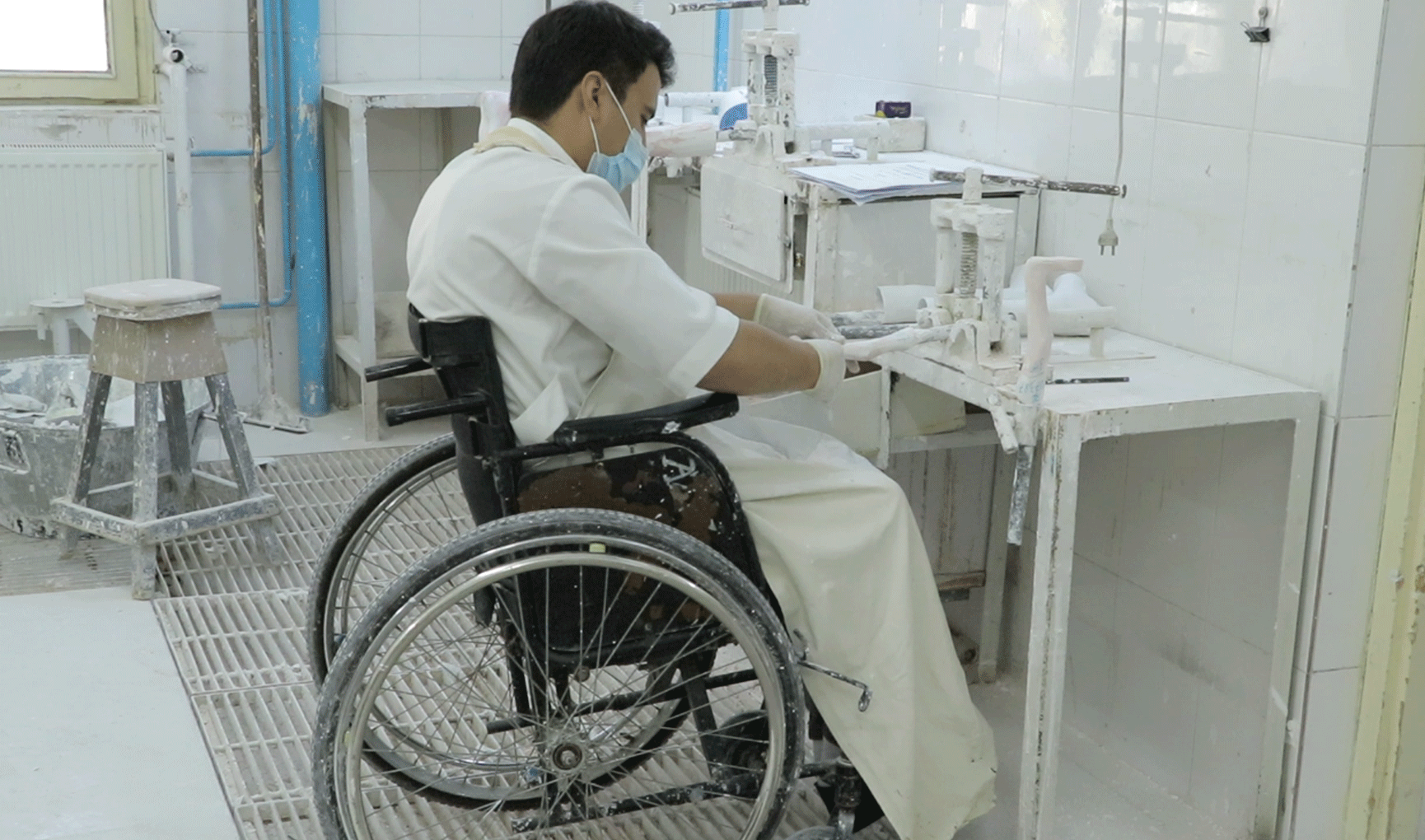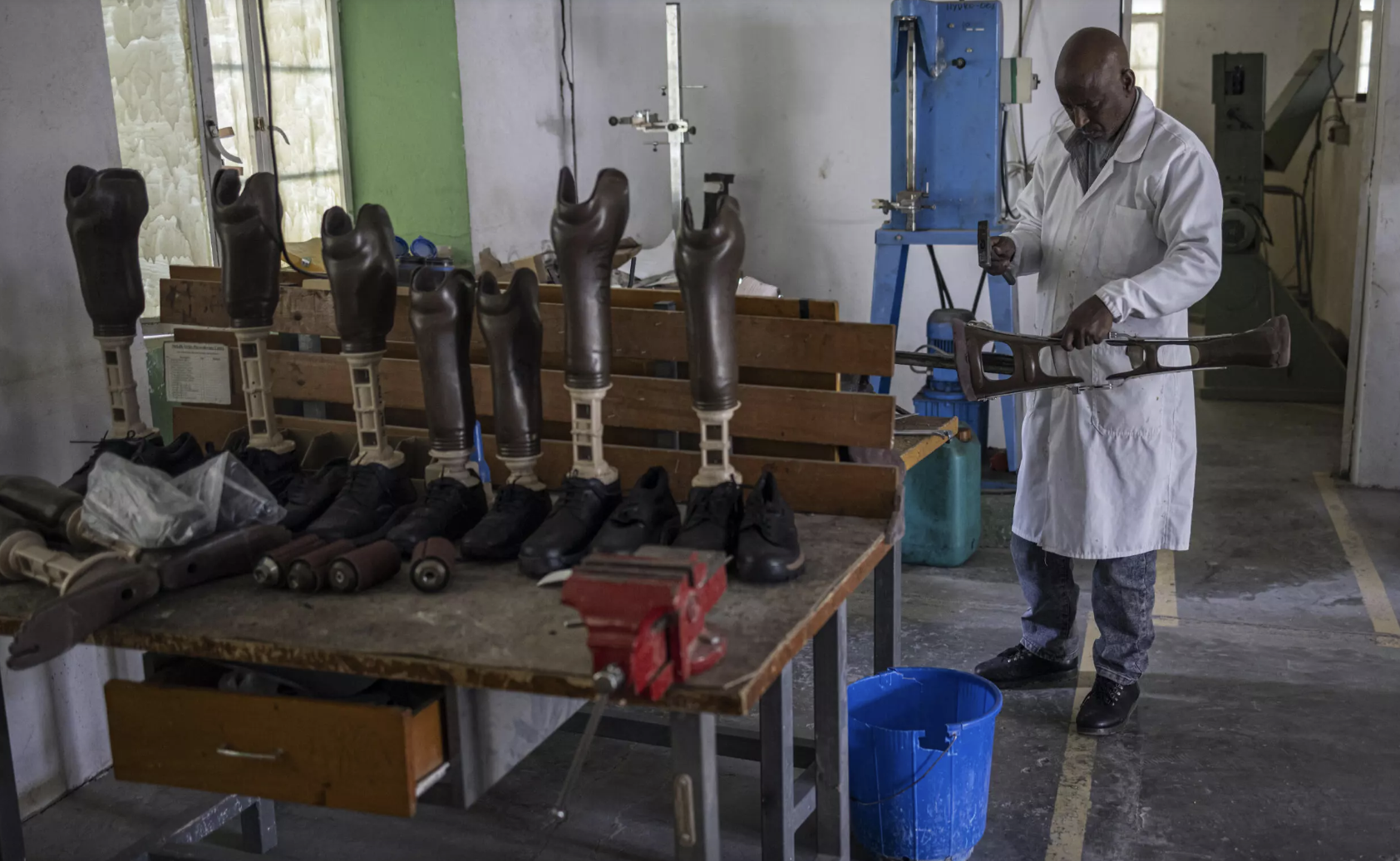As the world is going to mark the International Day of People with Disabilities on Tuesday to shed light on the rights of the war victims, injured Afghans have denounced the war and explosive devices as the enemy of human being, calling for lasting peace in their war-battered country.
"I hate mines and explosive objects. I feel dizzy whenever I hear the word of mine," Ruqia, a 15-year-old Afghan girl who lost her foot in a landmine explosion told Xinhua at a rehabilitation center, run by the International Committee of the Red Cross (ICRC) in Kabul.
Expressing her hatred towards war and explosive devices, she recounted the traumatic incident that changed her life forever.
"I was five and travelling from Ghor province to Kabul when our vehicle hit a landmine. The explosion severed my foot," Ruqia recalled.
Afghanistan remains one of the most heavily mined countries in the world, with remnants of more than four decades of war and civil strife endangering lives every day. Children are often the victims of these deadly explosives, which continue to maim and kill indiscriminately.
Despite her physical challenges, Ruqia dreams of a brighter future. "I want to become a doctor so I can help other victims of landmines," she said. Using an ICRC-provided prosthetic limb, she spoke of her sadness at being unable to join her friends in outdoor games.
Like Ruqia, Amanullah is another mine victim who often visits the ICRC-run rehabilitation center in Kabul to check his health condition and repair his artificial leg.
Recalling his ordeal, the dejected man said that, in 2001, while he was a student in Jalalabad, a mine explosion went off and severed his foot as he went to perform ablution. "War brings nothing but destruction. It destroys lives, leaves people disabled and ruins the country," Amanullah lamented.
War-battered Afghanistan is among the most mine-contaminated countries. "About 15,000 to 16,000 people with disabilities register with us annually. Out of these, about 1,500 are war-related disabled people," Najmudin Hilal, head of the ICRC hospital in Kabul, told Xinhua in his office.
Approximately 80 percent of the war-related disabled people had been affected by mines and had lost a hand or foot in the mine blasts, the official said.
Hilal himself is also a victim of a mine explosion. He described the landmines as a "sleeping enemy," recalling that he was 18 years old when a mine cut off his feet, leaving him for one year in hospital to recover.
"We see 200 to 250 patients daily in Kabul alone and we have registered more than 150,000 disabled individuals so far in Kabul. We have seven rehabilitation centers in the country, with more than 268,000 disabled persons being registered," Hilal, who joined ICRC in 1988, told Xinhua.
According to UNMAS, about 45,300 Afghan civilians have been recorded to have been killed or injured by landmines and explosive remnants of war (ERW) since 1989. The average monthly civilian casualties from explosive devices in Afghanistan currently stand at around 50 individuals. ERW from armed clashes caused nearly 86 percent of the casualties recorded from January 2023 to August 2024. In the same year, more than 89 percent of the ERW casualties were children. ■
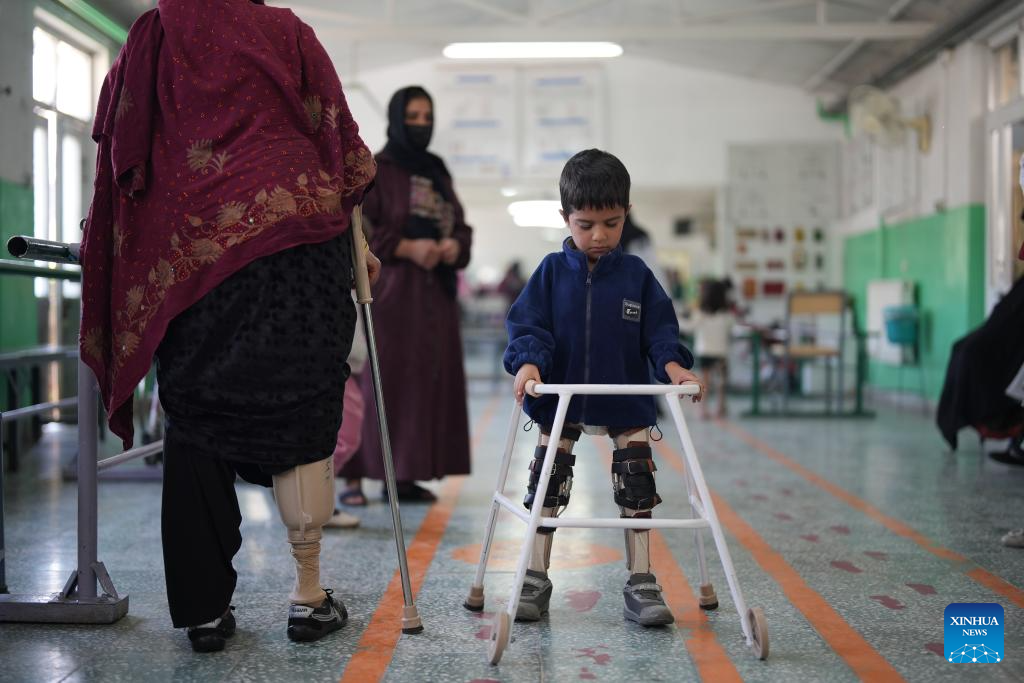
People with prosthetic limbs practice during a physiotherapy session at a rehabilitation center run by the International Committee of the Red Cross (ICRC) in Kabul, Afghanistan, Nov. 26, 2024. (Xinhua/Li Ang)
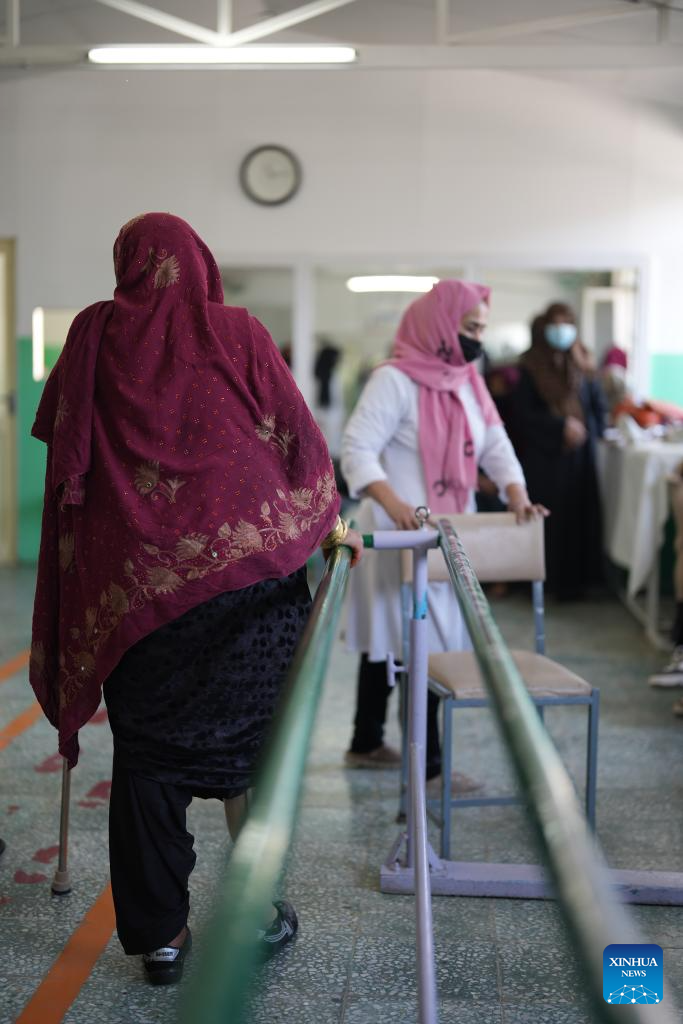
People with prosthetic limbs practice during a physiotherapy session at a rehabilitation center run by the International Committee of the Red Cross (ICRC) in Kabul, Afghanistan, Nov. 26, 2024.
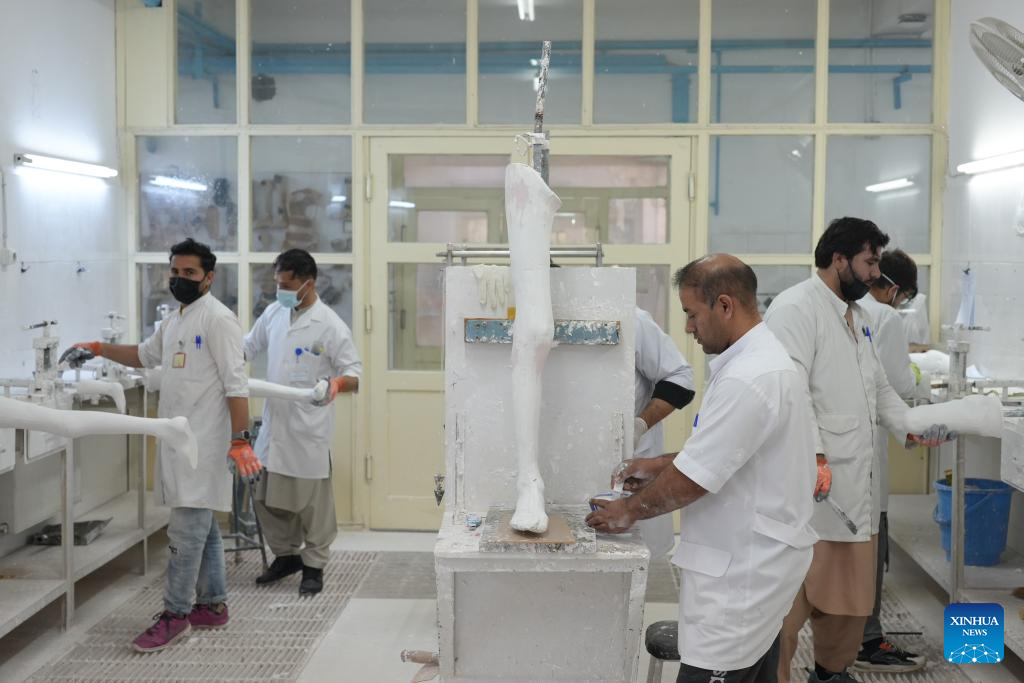
Staff members make prosthetic limbs at a rehabilitation center run by the International Committee of the Red Cross (ICRC) in Kabul, Afghanistan, Nov. 26, 2024.
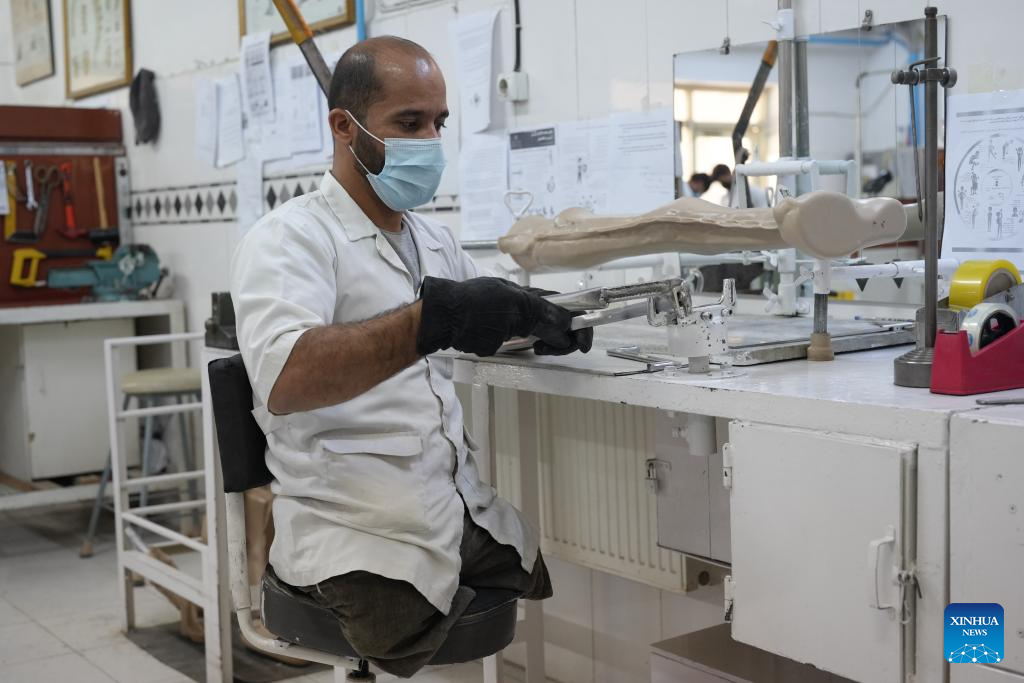
A man works at a rehabilitation center run by the International Committee of the Red Cross (ICRC) in Kabul, Afghanistan, Nov. 26, 2024.
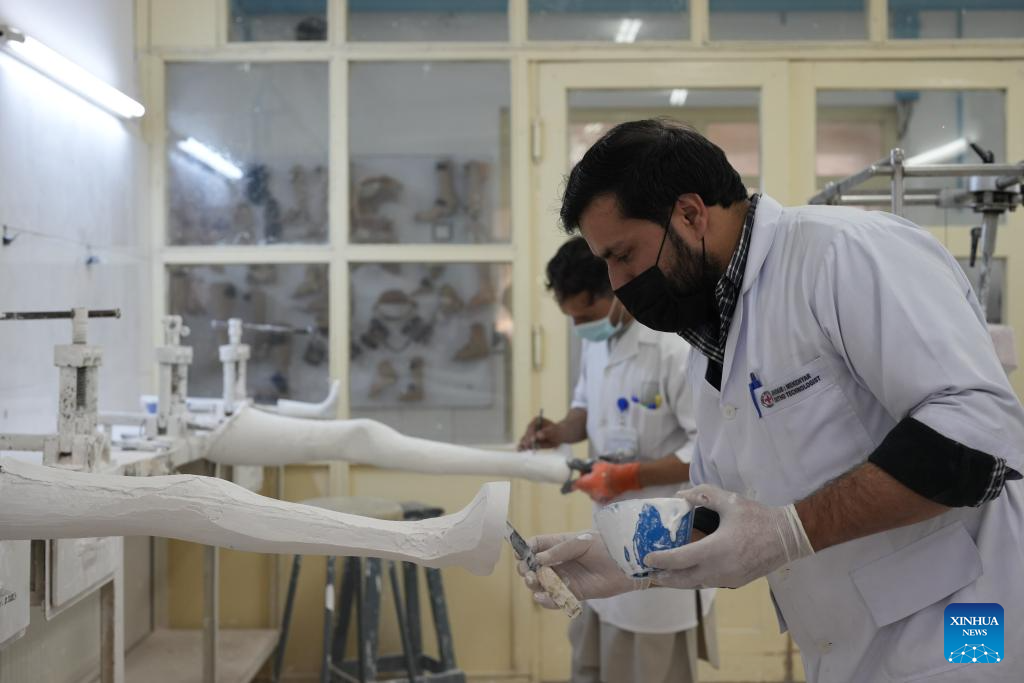
Staff members make prosthetic limbs at a rehabilitation center run by the International Committee of the Red Cross (ICRC) in Kabul, Afghanistan, Nov. 26, 2024.







